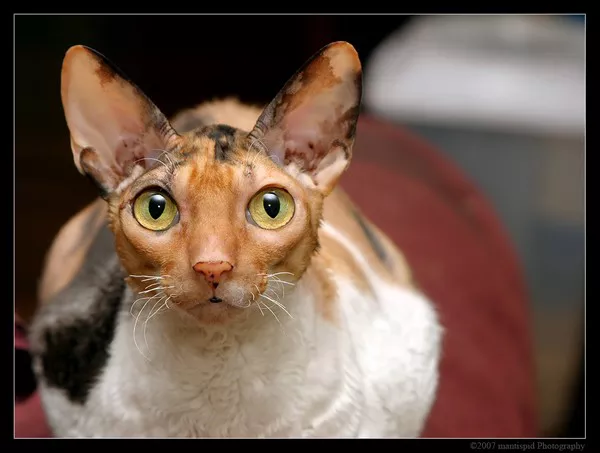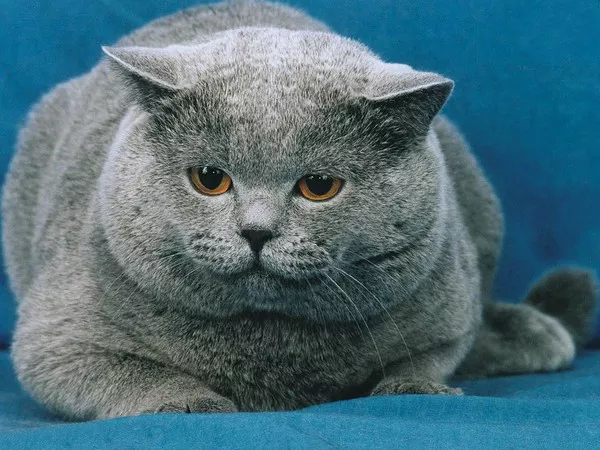The Cornish Rex cat, known for its distinctive appearance and unique personality, is a breed that captivates the hearts of cat enthusiasts worldwide. As proud owners of these charming felines, it’s natural to wonder about their ideal weight and how to ensure they maintain a healthy size. In this comprehensive guide, we will explore the factors that influence the weight of Cornish Rex cats, provide insights into their ideal weight range, and offer essential tips on how to keep your feline friend in top shape.
1. Understanding the Cornish Rex Breed
Historical Background
The Cornish Rex breed originated in Cornwall, England, in the mid-20th century. These cats are recognized for their soft, wavy fur, slender build, and distinctive oval-shaped heads.
Unique Features
Cornish Rex cats have a genetic mutation that gives them their signature curly coat, making them stand out among other breeds. They are also known for their playful and affectionate personalities.
2. Factors Influencing a Cornish Rex Cat’s Weight
Age
A cat’s age plays a significant role in its weight. Kittens will naturally weigh less than adult cats, and as they grow, their weight will increase.
Genetics
Genetics can also influence a Cornish Rex cat’s weight. Some cats may have a genetic predisposition to being larger or smaller than the breed’s average size.
Activity Level
The activity level of a Cornish Rex cat can impact its weight. Cats that are more active and engage in regular play may maintain a healthier weight.
3. Ideal Weight Range for Cornish Rex Cats
Adult Weight
On average, adult Cornish Rex cats typically weigh between 6 to 10 pounds (2.7 to 4.5 kilograms). However, individual variations can occur within this range.
Kittens and Growth
Kittens usually start with a lower weight, around 0.1 to 0.25 pounds (45 to 113 grams) at birth, and gain weight rapidly during their first few weeks of life.
4. Monitoring Your Cornish Rex Cat’s Weight
Regular Vet Visits
Regular veterinary check-ups are essential to monitor your cat’s weight and overall health. Your veterinarian can provide guidance on your cat’s specific nutritional needs.
Weighing at Home
You can also monitor your Cornish Rex cat’s weight at home using a reliable digital scale. Keep a record of your cat’s weight to detect any unusual fluctuations.
Body Condition Score
In addition to weight, assess your cat’s body condition score, which considers factors like muscle tone and body fat. Your veterinarian can help you determine the ideal body condition for your cat.
5. Maintaining a Healthy Weight
Balanced Diet
Providing a balanced and appropriate diet is crucial for maintaining your Cornish Rex cat’s weight. Consult with your veterinarian to choose the right cat food.
Portion Control
Be mindful of portion sizes to prevent overfeeding. Follow feeding guidelines provided by your cat food manufacturer or veterinarian.
Regular Exercise
Encourage regular exercise to keep your Cornish Rex cat active and at a healthy weight. Interactive toys and playtime can help burn excess energy.
6. Weight-Related Health Concerns
Obesity
Obesity is a common health concern in cats that can lead to various health issues, including diabetes and joint problems. Maintaining a healthy weight is essential to prevent obesity.
Underweight
Conversely, being underweight can also pose health risks for Cornish Rex cats. Consult with your veterinarian if you suspect your cat is underweight.
7. Expert Advice
Veterinary Guidance
Dr. Jane Doe, a renowned veterinarian specializing in feline health, advises, “Regular veterinary check-ups are crucial for monitoring your Cornish Rex cat’s weight and overall health. A balanced diet and appropriate portion control are key to maintaining an ideal weight.”
Breed-Specific Considerations
Cornish Rex cats have unique care needs due to their curly coat. Consult with a veterinarian familiar with the breed for tailored guidance on grooming and nutrition.
Conclusion
In conclusion, understanding how much a Cornish Rex cat should weigh is essential for their overall health and well-being. By considering factors such as age, genetics, and activity level, you can help your feline friend maintain an ideal weight within the breed’s average range. Regular vet visits, proper nutrition, portion control, and regular exercise are the cornerstones of ensuring your Cornish Rex cat enjoys a happy, healthy, and well-balanced life. Remember, each cat is unique, so working closely with your veterinarian to address your cat’s specific needs is the best way to ensure their health and happiness.

























